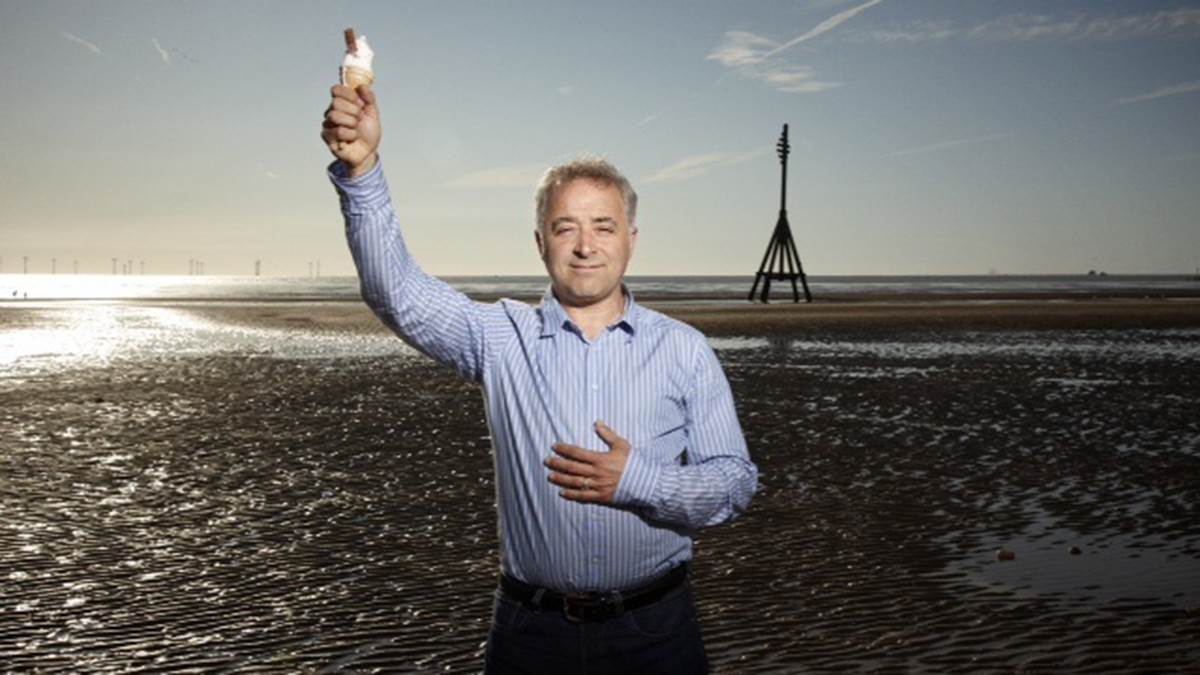Interview with Frank Cottrell-Boyce
Published on: 9 Ionawr 2017 Author: Robbie Hunt
We asked the author of Millions, Framed and most recently Sputnik's Guide to Life on Earth for some wise words about libraries, reading and how reading makes you a happier person.

Post-festive period, we're celebrating libraries in January (and all the time, obviously) as a reminder that some of the best things in our lives are still free. Can you give us some words of wisdom about why libraries are so important?
One of the great things about the library is The Unexpected. We are beginning to realise that while the internet seems to offer all human knowledge, what it most often tempts us to do is build little echo chambers. We're like bower birds, building little narcissistic shelters out of things we already know. Browsing actual books on a shelf, or talking to real people create the opportunity to be challenged and surprised. It is from the accidental and the unexpected that the greatest discoveries flow.
One of the great things about libraries of course is that they contain LIBRARIANS. No technology can replace real human interaction.
Libraries are powerhouses of social mobility. Surely if we have learned one thing in 2016 it is that if we keep on chosing our leaders from the same narrow pool, we will end up in real trouble. I used to think social mobility was a matter of social justice, now I think it's the only thing that can save us. And libraries are the key to it.
Your books often deal with difficult topics but also have an uplifting feel. What are your top three favourite children's books that have a positive message? What books did you love as a child?
- Just William - because most of William's chaos is caused not by him wanting to be mischievous but because William is always campaigning for justice and right. He has a noble heart. He's totally misunderstood. But it's okay because, you know, bulls eyes and mates. William's big lesson is that if you do the right thing, probably no one will thank you. But that's no reason to stop trying - I think that's a really profound and important lesson.
- The Tiger Who Came to Tea - because of what it says about how entwined hospitality and bravery are. That seems a timely lesson in these days of fear.
- The Finn Family Moomintroll - especially the moment when Moominmama recognises Moomintroll, even though he has been transformed out of all recognising by the Hobgoblin's hat. That story is the perfect definition of unconditional love - Moomintroll's mother recognises her boy when no one else does.
As a child I was also obsessed with Ursula Le Guin's A Wizard of Earthsea - I even remember what font my copy was printed in! I would sit looking at the map of Earthsea for hours.
How do you think reading contributes to living well and being happy? Does reading make you happier, do you think?
Let me count the ways!
I guess it all comes down to two great contradictory truths: The first is that you are not alone - that whatever you are experiencing or fearing or loving - someone has done that before.
The second is almost the opposite - that you are unique, that the way you see things is different from the way other people see them. And the best and most enriching place to learn this is in books, where you are constantly exposed to other ways of seeing.
Do you have a favourite children's book (or more than one) that features a library? What is it/are they?
I've just realised that the library is at the heart of A Wizard of Earthsea. But you've got to love the library in the Invisible University in Terry Practchett's Discworld the most.





